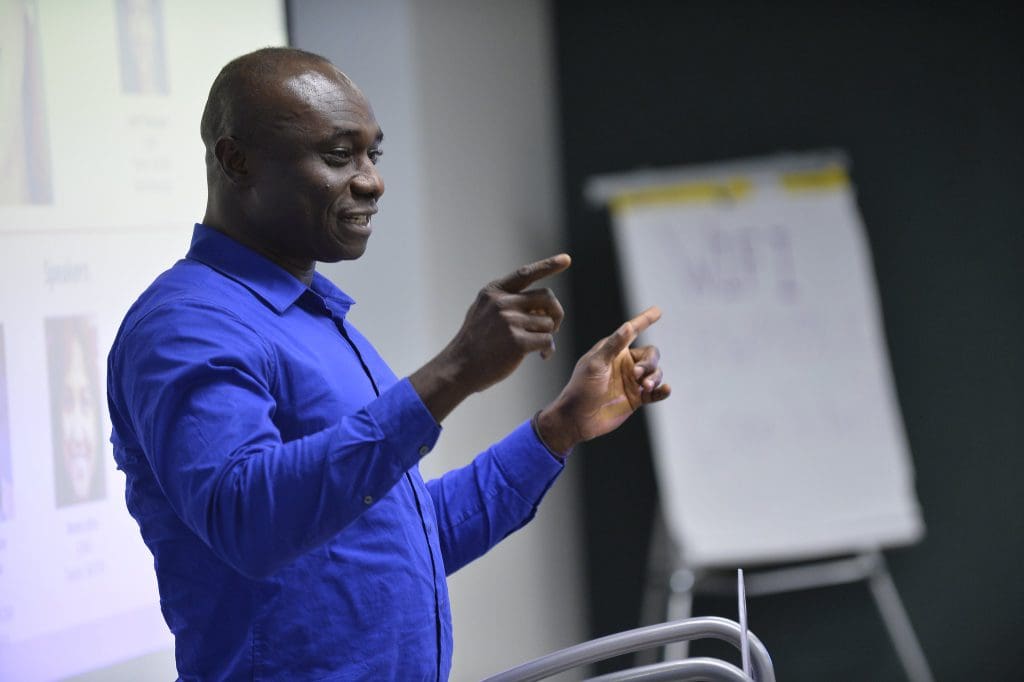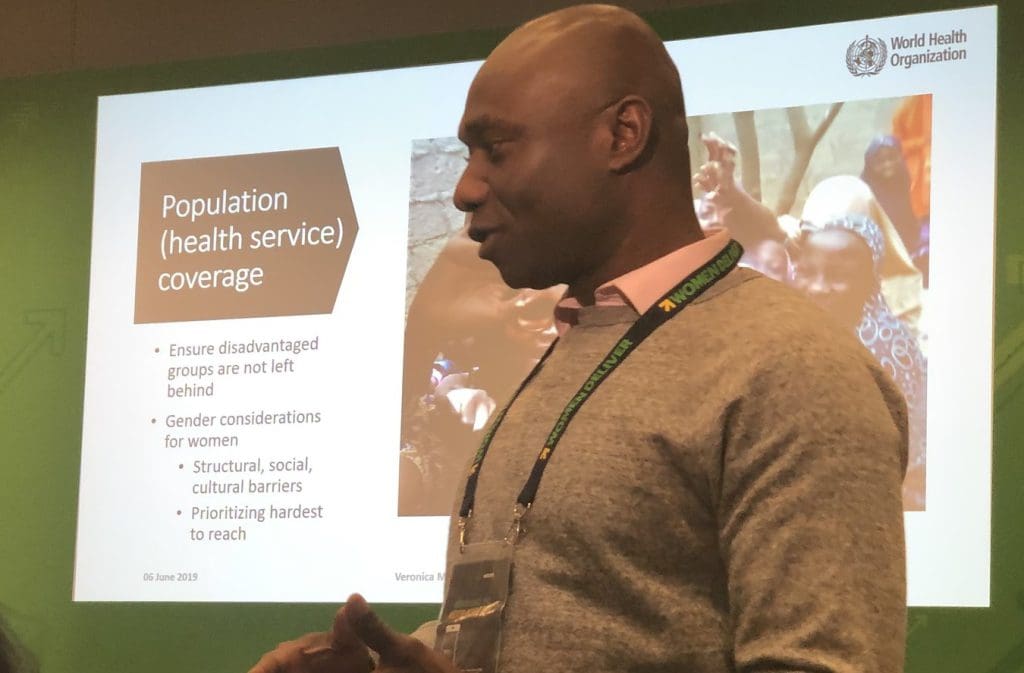
Staff Spotlight: A Conversation with Chimaraoke Izugbara
19 October 2021
Media Contact

Dr. Chimaraoke (Chima) Izugbara, ICRW’s Director of Global Health, Youth and Development, is currently based out of ICRW’s office in Washington DC, but he has been in Lagos, Nigeria (his home country) for several months, exploring the potential for expanding ICRW’s current physical presence on the continent to include West and Central Africa.[1] Chima came to ICRW in March 2018 from the African Population and Health Research Center (APHRC), in Nairobi, Kenya, where he served as Senior Research Scientist, Program Head, Population Dynamics and SRH (sexual and reproductive health), after directing the institute’s Research Capacity Strengthening Division for nearly a decade.
Jess Ogden, ICRW’s Global Director for Research Impact and Learning, recently caught up with Chima to learn more about what he’s been up to in Lagos and what his vision is for ICRW West and Central Africa.
Q: Having been back in Nigeria for a few months, and given your knowledge of the local context, what would you say are the most pressing issues facing women, girls, and other marginalized communities in the region today?
Chima: The challenges are many; it is difficult to say which would stand out as most pressing. In Nigeria, women and girls continue to be left behind in almost everything – from formal education, through quality sexual and reproductive health (SRH) services and sustainable livelihoods, to political participation. Poverty remains highly gendered in Nigeria, which is undergoing major social, political, and environmental upheavals, with far-reaching impacts on women and girls. Many Nigerian women work in the insecure informal sector, lack adequate social protection, and face many barriers to accessing resources that can guarantee their economic independence and wellbeing. Businesses owned by women, in many parts of Nigeria, are the last to open and first to close each day. COVID’s impacts on women’s enterprises remain disastrous and are ongoing.
When it comes to women’s health, unsafe abortion remains a problem, and so does access to modern family planning services. In some parts of the country, early marriage remains common and gender-based violence is rife.
Of course, all these negative outcomes result, in part, from the persistence of oppressive gender norms, which constrain any real progress for most women, girls, and gender-nonbinary persons. The voices of women remain muted in ongoing development discussions and actions across multiple sectors. And as conservative forces grow stronger, both on- and offline, a renewed social crisis is developing across Nigeria over issues of abortion, adolescent sexuality, gender non-conforming sexuality, and gender equality.
Q: The situation sounds bleak. Presumably research can help, by providing evidence on which to base policy and program development and implementation. What would you say are the main knowledge gaps that organizations like ICRW can help to fill?
Chima: As with the challenges, so too with the data gaps. There is, in fact, a paucity of information on how to most effectively address each of the issues highlighted in my prior comments. Firstly, few studies exist on what works to transform gender norms in the region. In addition, we lack good data to inform policies that will help ensure that gains in technology reach disadvantaged women and girls and to support engagement, advocacy and policy efforts to counter and combat backlash against, and drive action on, SRHR (sexual and reproductive health and rights) issues, including safe abortion, sex education, and women’s rights across the sub-region. Finally, there is a great need for research exploring whether the many promises and commitments made for women and girls are being met. Policymakers need to be applauded for any gains achieved and, critically, held accountable for ongoing gaps and missed opportunities.
Q: Where will the solutions come from, and what is needed to make meaningful progress?

Chima: There is need for robust, collaborative, and locally-relevant research that feeds into sustained advocacy and policy engagement. Growing and supporting a new generation of locally-based and deeply committed gender researchers and advocates will be key to moving evidence-grounded advocacy and policy engagement forward in West and Central Africa.
Q: What’s your vision for ICRW’s work in the region? What will be your priority topics to tackle?
Chima: Bringing our work closer to the people who need it most is key and urgent. We can achieve this by using ICRW to create a home – a center of excellence – for the next generation of researchers and advocates to keep gender issues on the front-burner of development action in the region. Being locally present in West and Central Africa, and generating critical new evidence on issues affecting girls, women, and other key groups, will be an important leap in our global engagement. The intersections of gender with development and wellbeing, are a key issue for attention! How do we effectively counter and combat backlash against SRHR and women’s rights across the sub-region, and how do we fast-track centering women and girls in post-Covid recovery efforts? These are pressing issues, and ICRW is perfectly positioned to drive real impact.
Q: What are you most excited about in the work that lies ahead for the region?
Chima: The possibility and prospects of creating a home for the next generation of critical research on gender and development in WCA. We hope to be starting some work here soon!
[1] ICRW’s Africa office currently straddles Nairobi and Kampala, though serves the East and Southern Africa sub-regions more broadly. Learn more about ICRW Africa here.
Learn more about Chima and his team’s recent work:
- Promoting Positive Masculinity for SRHR in Urban Informal Settlements of Rwanda, Nigeria, and the Democratic Republic of Congo
- Improving SRHR Outcomes Among Young Refugee Women and Girls in Nigeria and Uganda
- Measuring Girls’ Empowerment
- Technology- and Community-Empowered Programming to Eliminate FGM
- COVID-19 and Indigenous Women in East Africa: Emerging Impacts, Responses and Opportunities
- Women-owned Informal Enterprises in the Developing World: Strategies for a Post-COVID-19 Recovery
- More here
